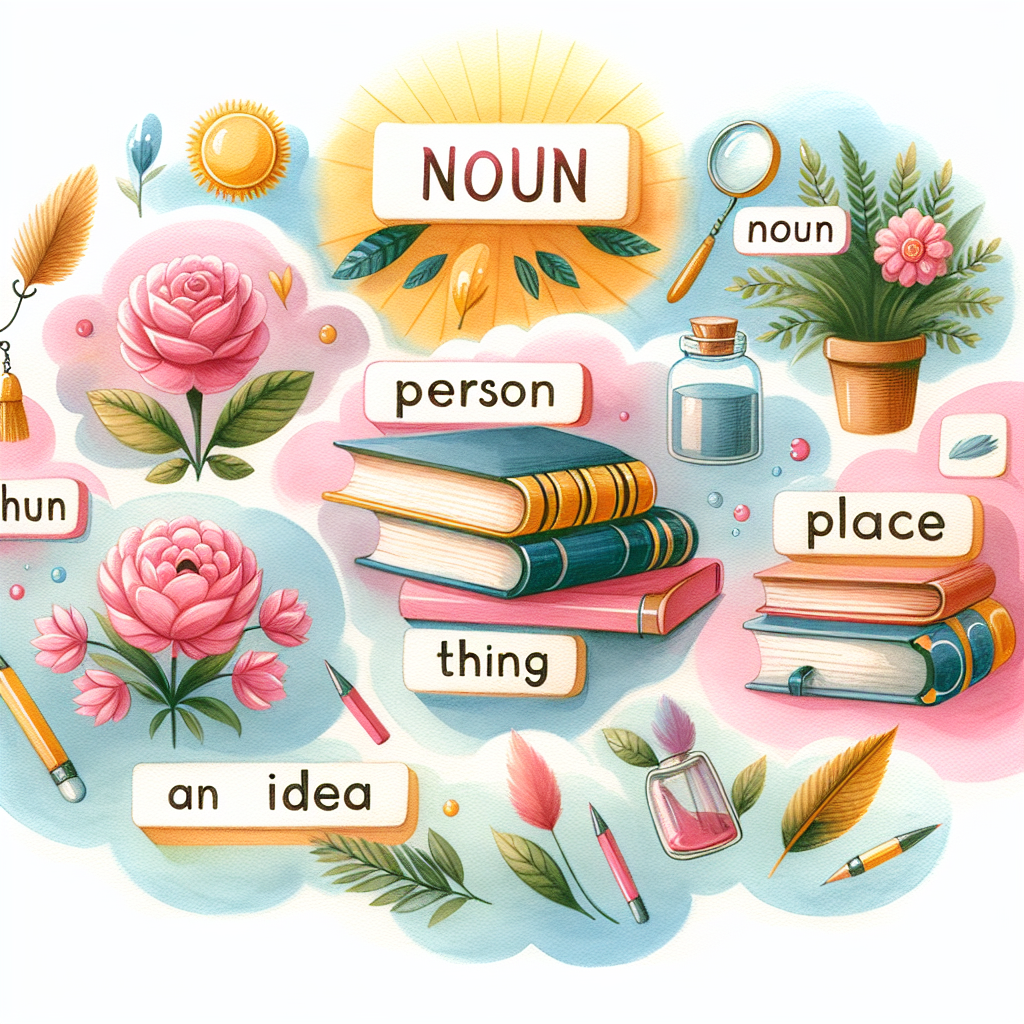Conversational English Quiz about Nouns in English Grammar

Question 1
आप संज्ञा (Nouns) के बारे में बातचीत की शुरुआत करना चाहते हैं। आप कैसे कहेंगे?
• a) Nouns are important.
• b) Do you know about nouns?
• c) Can we talk about nouns in English grammar?
• d) Why should we discuss nouns?
Question 2
आप संज्ञा के महत्व के बारे में जानकारी प्राप्त करना चाहते हैं। आप कैसे पूछेंगे?
• a) Are they useful?
• b) Is it important?
• c) Can you explain why nouns are important in English?
• d) Should I care?
Question 3
आप सामान्य संज्ञा (Common Nouns) के बारे में जानना चाहते हैं। आप कैसे पूछेंगे?
• a) What are common nouns?
• b) Are they common?
• c) Can you give me examples of common nouns?
• d) Why does it matter?
Question 4
आप व्यक्तिवाचक संज्ञा (Proper Nouns) के बारे में जानकारी प्राप्त करना चाहते हैं। आप कैसे पूछेंगे?
• a) What are proper nouns?
• b) Are they specific?
• c) Can you explain what proper nouns are with examples?
• d) Should I know?
Question 5
आप सामूहिक संज्ञा (Collective Nouns) के बारे में जानना चाहते हैं। आप कैसे पूछेंगे?
• a) What are they?
• b) Are they groups?
• c) Can you tell me about collective nouns with examples?
• d) Why is it important?
Question 6
आप वस्तुरूपक संज्ञा (Concrete Nouns) के बारे में जानकारी प्राप्त करना चाहते हैं। आप कैसे पूछेंगे?
• a) What are concrete nouns?
• b) Are they tangible?
• c) Can you explain concrete nouns with examples?
• d) Does it matter?
Question 7
आप भाववाचक संज्ञा (Abstract Nouns) के बारे में जानना चाहते हैं। आप कैसे पूछेंगे?
• a) Are they intangible?
• b) Do they represent feelings?
• c) Can you tell me about abstract nouns with examples?
• d) Why should it matter?
Question 8
आप गणनीय और अज्ञेय संज्ञा (Countable and Uncountable Nouns) के बारे में जानकारी प्राप्त करना चाहते हैं। आप कैसे पूछेंगे?
• a) Can they be counted?
• b) Are they countable?
• c) Can you explain countable and uncountable nouns with examples?
• d) Should I know?
Question 9
आप एकवचन और बहुवचन संज्ञा (Singular and Plural Nouns) के बारे में जानना चाहते हैं। आप कैसे पूछेंगे?
• a) Are they singular?
• b) Can they be plural?
• c) Can you tell me the rules for forming singular and plural nouns?
• d) Why is it relevant?
Question 10
संज्ञा के बारे में बात करने के बाद किसी को धन्यवाद देना चाहते हैं। आप कैसे कहेंगे?
• a) Thanks.
• b) This was informative.
• c) Thank you for discussing nouns in English grammar with me!
• d) Why should I thank you?
Answers and Explanations
Question 1: c) Can we talk about nouns in English grammar?
Explanation: यह संज्ञा के बारे में बातचीत की शुरुआत करने का एक विनम्र और उपयुक्त तरीका है।
Question 2: c) Can you explain why nouns are important in English?
Explanation: यह संज्ञा के महत्व के बारे में जानकारी प्राप्त करने का एक सही और स्पष्ट तरीका है।
Question 3: c) Can you give me examples of common nouns?
Explanation: यह सामान्य संज्ञा के बारे में जानने का एक उचित तरीका है।
Question 4: c) Can you explain what proper nouns are with examples?
Explanation: यह व्यक्तिवाचक संज्ञा के बारे में जानकारी प्राप्त करने का एक उपयुक्त तरीका है।
Question 5: c) Can you tell me about collective nouns with examples?
Explanation: यह सामूहिक संज्ञा के बारे में जानने का एक सही तरीका है।
Question 6: c) Can you explain concrete nouns with examples?
Explanation: यह वस्तुरूपक संज्ञा के बारे में जानकारी प्राप्त करने का एक उचित तरीका है।
Question 7: c) Can you tell me about abstract nouns with examples?
Explanation: यह भाववाचक संज्ञा के बारे में जानने का एक उपयुक्त तरीका है।
Question 8: c) Can you explain countable and uncountable nouns with examples?
Explanation: यह गणनीय और अज्ञेय संज्ञा के बारे में जानकारी प्राप्त करने का एक सही तरीका है।
Question 9: c) Can you tell me the rules for forming singular and plural nouns?
Explanation: यह एकवचन और बहुवचन संज्ञा के निर्माण के नियमों के बारे में जानने का एक उचित तरीका है।
Question 10: c) Thank you for discussing nouns in English grammar with me!
Explanation: यह संज्ञा के बारे में बात करने के बाद धन्यवाद देने का एक सही और विनम्र तरीका है।

